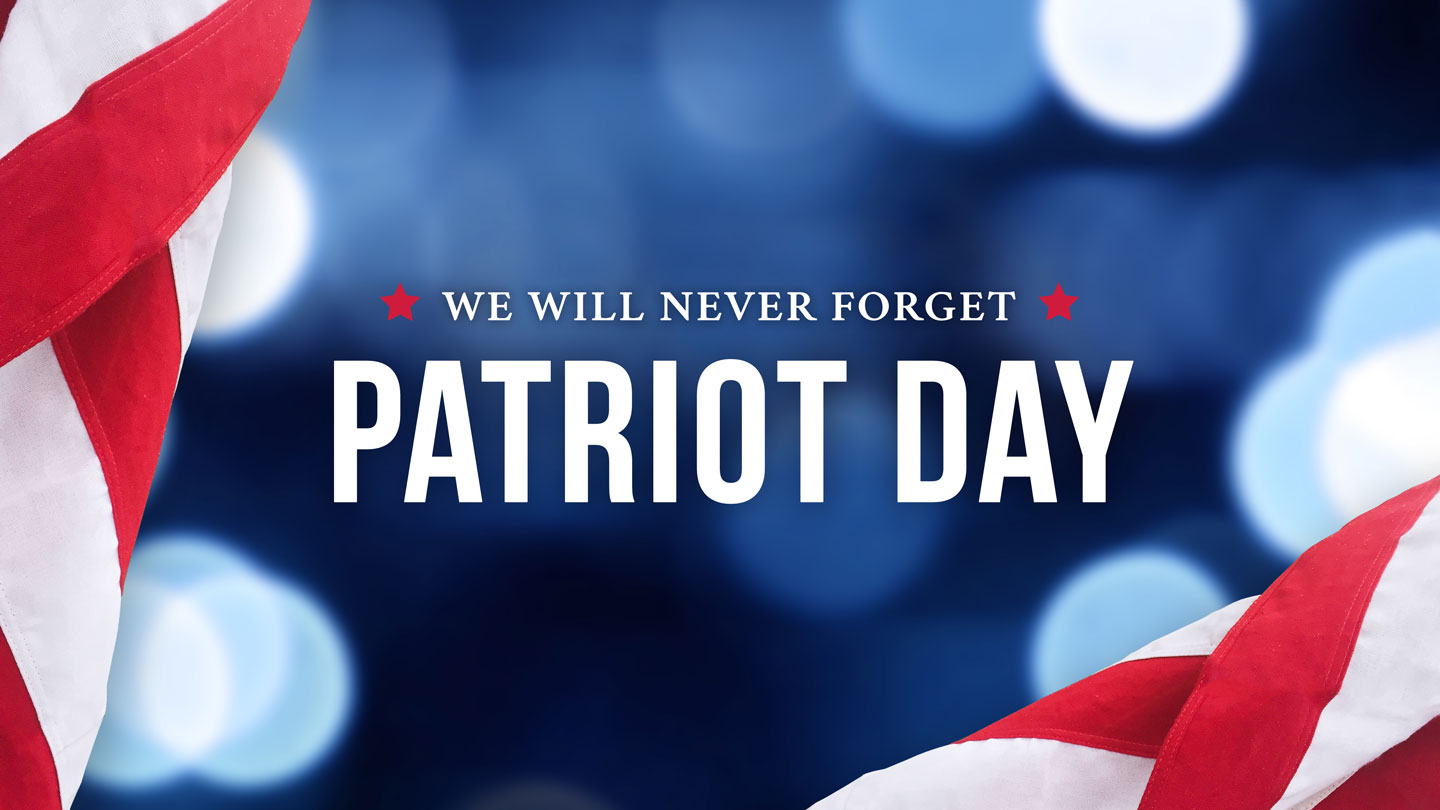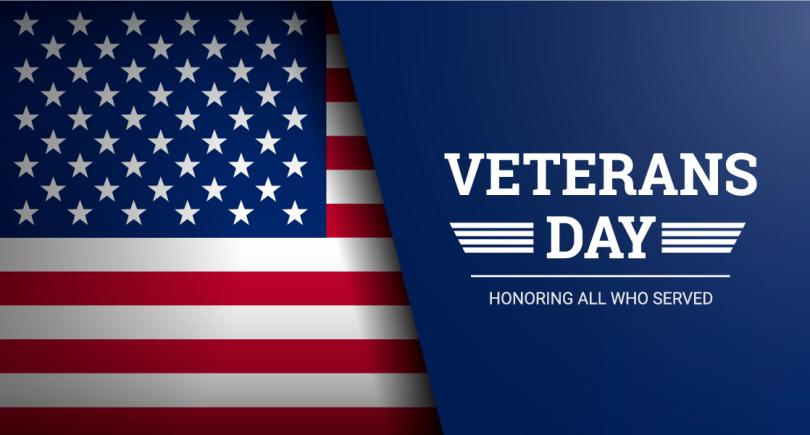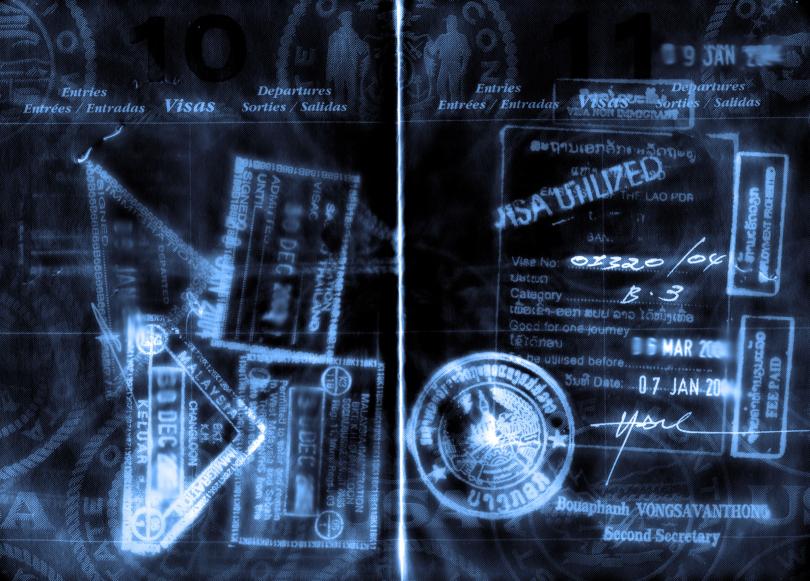
Patriot Day 2022: Remembering 9/11
Many of us remember clearly where we were and what we were doing on September 11, 2001. First responders put their lives on the line and many people lost loved ones. Shock and uncertainty poured over this country, unsettling us and becoming indelibly ingrained in our memories.
LMI employees shared their experiences from that day. Each story offers a different perspective and further proves that, no matter where you were, this event was unforgettable.
Please note that these heartfelt accounts may induce strong emotions for some readers.

A Sailor's Perspective
Sinclair Harris | Vice President, Client Relations
I was in command of USS COMSTOCK (LSD 45) on a routine deployment as part of the PELELIU Amphibious Ready Group. We had Marines from the 15th Marine Expeditionary Unit embarked in the three ships of the group. My ship had two hover crafts (LCAC), four tanks, and about 500 Marines onboard who were conducting training in Darwin, Australia. It was late in the evening in Darwin when my wife Cora, who was in San Diego, CA, called to tell me that planes were flying into buildings in New York and in our hometown, Washington, D.C. While Cora was describing the situation, one of the Marine captains charged into my cabin to tell me, "America is under attack!" I had no TV or radio, so this was shocking and hard to fathom. Cora said she was okay but would check with family back in D.C. We prayed, and she told me that she knew I would probably be back at sea soon and out of communications again. This was similar to what happened during Desert Storm. The group of ships all got orders to get underway immediately and put to sea—orders on what to do and where to go would come.
The next two weeks seemed to take forever as we steamed in circles waiting to get the word from Washington on our response. We carried out a humanitarian mission in East Timor during this time, but all the while the Marines were preparing to go ashore. Where, no one knew, but we all knew this would not stand. Finally, the word came for us to join General Mattis and Task Force 58 off the Makran Coast (Pakistan) and prepare to deploy troops to Camp Rhino, which was being established in Afghanistan. The name of the operation was not established until 7 October. We just knew we were going after terrorists in the mountains of a country none of us had thought about or prepared for. I was just thankful my family was safe and I had a chance to support the response as part of the U.S. Military and my Navy-Marine Corps team.
...We just knew we were going after terrorists in the mountains of a country none of us had thought about or prepared for...
LMI Trip to Brazil
Mike Slay | Consultant, Operations Research
On the afternoon of September 11, 2001, Rob Kline and I were presenting the features of LMI’s Aircraft Sustainability Model at the Embraer factory in San Jose Dos Compos, Brazil. Our meeting was interrupted by someone announcing that there had been a terrorist attack in the U.S. and that the World Trade Center had been destroyed.
We all walked out into a covered courtyard where a giant television normally showed soap operas. CNN was on. We stood there slack-jawed, watching the plane hit the second tower over and over.
Eventually, we realized there was nothing we could do other than go back to work, so we did. That evening, we tried to catch up with associates, friends, and loved ones, but no one knew much. Thankfully everyone we knew was safe. In fact, folks were most concerned about us.
Our return flight didn’t seem likely to happen. “Not to worry,” our hosts said, “if the flight’s canceled, we’ll just go to the beach at Caraguatatuba.” That was enticing, but couldn’t compete with home. On Friday, they told us to get to the airport three hours early and hope for the best. The first leg was to Miami. Suddenly, we were good to go and boarded an almost empty 777. The middle section is five seats across, so we could just raise the armrests and lie down. What a blessing.
We were on the first plane into Miami, and we strongly suspect it was the first plane into the U.S. after crossing saltwater. That airport is normally a zoo, but we didn’t see another pair of eyes until we hit customs.
It felt apocalyptic.
We were on the first plane into Miami, and we strongly suspect it was the first plane into the U.S. after crossing saltwater.
Musings on 9/11 from Inside the Uniform while Outside the Country
Anonymous LMI Employee
On September 11, 2001, I was stationed with my family of four in Korea, near the end of my two-year tour there. I commanded a small detachment of logistics, support, and medical specialists at a mothballed Air Force base in the central part of the country and was billeted in family housing inside a local Army post. My next assignment was at the Pentagon, and we were scheduled to move to the D.C. area in less than two months.
Like almost every other day there, I came home to my wife, son, and young daughter well after dark, tired after another long day and happy to have a few hours to relax and recharge with the people I love. I remember my wife serving a nice meal, then I collapsed into a recliner that had taken on my impression in the cushion, helped by the weight of my daughter on my lap. As usual, I mindlessly turned on Armed Forces TV and struggled to comfortably stay awake while my daughter chatted about her day. I think it was about 9:00 p.m. that evening when I was awakened by my wife shooing the kids to bed.
Groggily, I opened my eyes and was faced with the image of a smoking hole in a large building against the backdrop of blue daylight. “Strange,” I thought, not knowing where this was taking place. I wondered what was happening and how, what I thought to be a small aircraft, couldn’t avoid hitting a building in a city somewhere. Curious, I shook off the sleep, told my wife to look, and turned up the sound. She took a small interest in what was undoubtedly a minor accident and tragedy, until we realized that this was in NYC and the “small” hole we were looking at was apparently caused by a large airliner. “That doesn’t make any sense,” I said.
I wasn’t sure what was going on, but it was starting to seem big enough for my junior high school son to be informed, so we called him in. He had not been in the room more than a few minutes when we were shocked by the rifle shot exit of flame and wreckage that was the remainder of United Airlines Flight 175 out of the South Tower. In that instant, we all knew that what we thought was an accident was not an accident at all. It was something hideous and much, much worse. I told my son that he had just watched the world change. I told him that our lives personally were about to change because of my job, but also that the lives of people around the globe and our way of life was about to change, too. There would be a war, I told him. I didn’t know who it would involve, but it had already started. I immediately got on the phone to my senior non-commissioned officers and told them to wake up our people and witness what was taking place. It was an awful, memorable night.
I told [my son] that our lives personally were about to change because of my job, but also that the lives of people around the globe and our way of life was about to change, too.
I have three related memories I think are worth sharing with you:
First, bases on the Korean Peninsula locked down. Everyone was restricted to their base except key and emergency personnel because no one knew what might come next. Would there be terrorist bombs detonated in places frequented by military people overseas or their families? My people were at the airbase, so I had some freedom of movement. I went in, talked with my folks, and coordinated with our and with Korean security. I talked with my leadership. We were all stunned by the series of events that had taken place hours earlier. We all wanted to do something. Frankly, we wanted revenge. We wanted to rain hell onto the backs of those who had perpetrated this awful crime, but we felt powerless about exactly what to do. I drove home at the end of that first day in the post-9/11 world. That’s when it happened. The sight that greeted me when I approached home that day will never leave my mind’s eye. The walls of the U.S. army compound we lived on where literally surrounded elbow-to-elbow with armed Korean military troops. I don’t think I can adequately express how gratifying that sight was. The Koreans were telling us, visually, that every Korean was an American in spirit that day. That they were as outraged by the act of terrorists as we were. It was an unforgettable moment.
Second, I reported to duty at the Pentagon mere months after 9/11. The damage to the building caused when American Airlines Flight 77 hit was extensive and clearly visible. When I went to work there, many people were still wearing bandages or had scars from the injuries that had been inflicted on them. I heard the stories firsthand from people who were there at the time. I heard about the many civilians who were so traumatized by the event that they quit their jobs and vowed to never return. I went to work in the basement of the Pentagon in a similar operations center to that of the Navy center where so many were trapped and died. It was just on the opposite side of the building and on the same level as my workplace. Now, I was supporting the kind of work that I knew we’d be doing when I saw that outrage take place on TV. For me, though, the memorable event took place at the Pentagon happened about a year later. You see, flight paths were restricted in D.C. after 9/11. For a time, the flight corridors in D.C. were much tighter to dampen likelihood of another air attack, but the pressure to allow for increased traffic into Reagan National Airport eventually allowed for resumption of flights over the Pentagon. By chance, I happened to be in the central courtyard of the Pentagon—where many eat their lunch or relax—when that first resumed flight came over at a low, noisy level. The effect of that flight’s noise, and the reflexive, quick, and sometimes terrified looks on strangers’ faces and the gasps uttered in reaction will never leave me. It was a small moment, and it may have only happened immediately around me. No one said anything about it or acknowledged it. But I saw fear. I hope not to see it again.
Third, my family and I eventually returned to assignment at a major air base in Europe. We’d been here before for four years and were looking forward to returning to this, our favorite location. Although, this was now years after 9/11, we were greeted on our first reentry to the base by a large German Air Force security operation that managed the bulk of base access security operations. The Germans were not just augmenting our American forces, they were conducting large scale vehicle and personnel sweeps the like of which I’ve never seen before or sense outside of a “hot” zone. They were amazingly polite, thorough, effective, and efficient, and I later learned doing it all as a contribution from the German government as a show of solidarity and friendship. These are the kinds of things that I wish our citizenry knew more about.
I’d like to thank LMI for asking that we reflect on this time and event. In my lifetime, despite the horror and outrage it inspired, I don’t remember a single, more unifying time than the aftermath of 9/11. In that moment, we were crystallized as a people. We were Americans, with no regard to our differences. We looked each other in the eye with an empathy we don’t often show, and we were resolved. Strange as it may sound, if there had to be a 9/11, I’m honored that I was privileged to help our nation respond to it, and I’m glad that experienced that moment of national unity. I miss it.
My September 11, 2001 Story
Alex Barenblitt | Sr. Consultant, Logistics Planning and Optimization
We of a certain age will always remember that tragic day. At the time, I was the federal business operations director at Sybase. One of our Intelligence Community customers called a few minutes after the first plane hit, informing me what happened.
I immediately set up a TV and gathered the entire federal staff at Sybase in our building, alerting them to the events known at that time. I also called my sister and brother-in-law, both federal employees in Washington, D.C., and told them to go to metro immediately, with no detailed explanation, just asking them to trust me.
I lost several customers and friends at the Pentagon that day. A month earlier, I was in a meeting with a customer in an office on the 94th floor of the World Trade Center that looked right at the Statue of Liberty, and my thoughts naturally went there on 9/11. A sad day in American history.
A month earlier, I was in a meeting with a customer in an office on the 94th floor of the World Trade Center that looked right at the Statue of Liberty, and my thoughts naturally went there on 9/11.
9/11 Experience
Robert Malloy | Sr. Consultant, Process Improvement
On September 11, 2001, I was dropping off my two children (ages 2 and 3) at the child development center on Fort Sill, Oklahoma. It was an ordinary Army day like any other. On my way out of the building, my neighbor stopped me and told me there had been an incident at the World Trade Center. She gave a brief explanation and I immediately feared the worst. I rushed to my battalion headquarters and by the time I got there the second tower had fallen. We were glued to the television and realized that the world had changed. The installation went into Force Protection Delta lockdown and units began to prepare for mobilization. The events of that day were a defining moment for our country and profoundly impacted the remainder of my military career. Never forget!
The events of that day were a defining moment for our country and profoundly impacted the remainder of my military career. Never forget!
Reflections from 9/11
Doug Wagoner | President & CEO
Like many people, I was at work when I heard about the first plane striking the World Trade Center. At the time I was a senior vice president of an IT consulting firm in Fairfax, Virginia, with most of our customers in the defense and intelligence space. By the time the third plane struck the Pentagon, my team and I were trying to determine how to get our customer-based employees to safety. The government was telling all civilians and contractors to leave federal government sites by that point. We had a lot of employees at Ft. Belvoir and Ft. Detrick, many of whom wanted to stay onsite to support their customers and their nation in this time of need.
I also spent a lot of time on the phone with my mom that day. One of her sisters—my Aunt Lois—worked at the Pentagon in the office of the deputy undersecretary. She was in the building but thankfully safe, as we later learned. However, we were unable to speak with Aunt Lois until the next day, as getting calls through to the Pentagon on the day of the attack was virtually impossible.
As I drove home that night, I looked up into the sky, wondering whether more attacks were to come. When I got home, my wife and I took our daughters, then in pre-K and kindergarten, outside with the other neighborhood kids to play and not be near the TV. Since we lived next to a large international airport, I was struck by how quiet it was outside. No planes were overhead, except for a military airborne radar plane. Seeing that aircraft, I wondered–were we at war? In 12 hours, the world as I knew it had irrevocably changed. It was a day unlike any other.
We had a lot of employees at Ft. Belvoir and Ft. Detrick, many of whom wanted to stay onsite to support their customers and their nation in this time of need.


